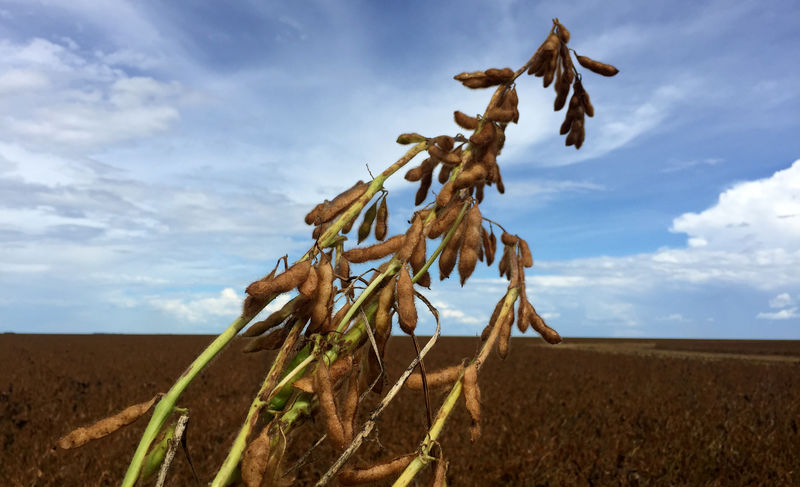By Rod Nickel
WINNIPEG, Manitoba, Nov 15 (Reuters) - Heavy snow and rain during harvest on the Canadian Prairies have left several million acres of canola buried until spring, the latest blow in a miserable year that may compound farmer problems into 2020.
Canola is renowned as Canada's most profitable crop, exported to China, Japan and Mexico to make vegetable oil and animal feed.
But in March, Beijing revoked the licences of Canadian exporters Richardson International and Glencore Plc's GLEN.L agriculture unit, Viterra Inc VILC.UL , slowing China's overall purchases amid a broader diplomatic dispute.
Canola futures RSc1 are down 3% year over year in the world's biggest canola-growing country despite severe harvest problems that normally would lift prices, adding further pressure to declining farm incomes.
This year will be remembered as the "harvest from hell," said farmer John Guelly, chairman of the Alberta Canola industry group. Canola's problems may even frustrate some from sowing it next year, he said.
"I think there will be a pullback in acres for sure."
In Alberta, 17% of canola was unharvested as of Nov. 5, according to the provincial government, along with 12% of Saskatchewan's canola and 9% of Manitoba's output measured around the same time. Based on Canadian government planting estimates, that unharvested canola represents some 2.7 million acres, or 13% of national plantings.
Some harvesting occurred after the latest provincial estimates, but the volume of unharvested crops looks to be the most in three years, said Shawn Jaques, chief executive of Saskatchewan Crop Insurance Corp.
Crops that remain in fields over the winter are subject to wildlife damage and to spoilage, but some of it can usually be salvaged at a discount.
Needing to harvest the previous crop once fields dry in spring can delay farmers from planting the next crop, however.
"There is palpable frustration," said Curtis Rempel, vice president of crop production at the Canola Council of Canada. "The fall was so tough for so many growers and right now people are still thinking about, 'what does my spring look like in terms of harvesting?'"
Friday is the deadline for farmers in Saskatchewan and Alberta, the two biggest canola-growing provinces, to file insurance claims. Collecting is an uncertain process, however, and many farmers count on their last harvested acres to make up their profit margin once expenses are paid, said Todd Lewis, president of Agricultural Producers Association of Saskatchewan.
This year has been "very long, very frustrating," said Lewis. "It's really hitting guys in the pocketbook."
